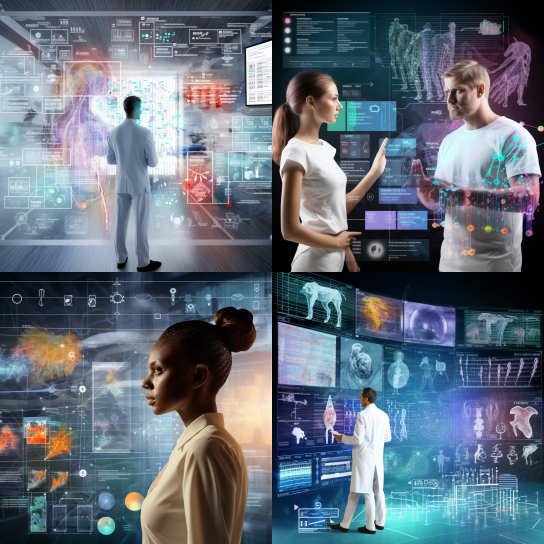Applications of machine learning in Transport & logistics and Pharmaceuticals
Applications of machine learning in Transport & logistics and Pharmaceuticals
Applications of machine learning in Transport & logistics and Pharmaceuticals
Applications of AI in Transport & logistics and Pharmaceuticals
To operate safely on the roads, autonomous vehicles need to be able to recognise a range of environmental features, including: obstacles, road signs, pedestrians, and other vehicles. The range and variability of these features means that it is not possible to create hard-coded rules specifying what the vehicle will come into contact with, and how it should respond in different situations. Machine learning allows the vehicle to adapt to a range of features, and respond accordingly. Further developments in the sophistication of autonomous vehicles have applications in a wide range of settings and industries. In one example of this, Amazon is developing the use of delivery drones, with the first successful delivery taking place in December 2016.
Real "AI Buzz" | AI Updates | Blogs | Education
Applications of AI in Transport & logistics
While autonomous vehicles might be the most high-profile of the potential applications of machine learning in transport, the technology could support a range of functions. To help create intelligent transport systems, for instance, algorithms could analyse historical data on traffic flows in an area, using this data to optimise the system, and to predict how it will respond to different pressures at different times of day. These insights can then be used to reduce congestion, with corresponding implications for reducing carbon emissions.
With appropriate information, it would also be possible to assess traffic flows in real time and make dynamic adjustments to improve traffic flow. For example, a network of road sensors, which records vehicle flow and congestion, surrounds the UK’s biggest shopping centre in Gateshead. By measuring how vehicles are moving around the centre, it is possible to predict when and where traffic problems will arise, allowing local traffic controllers to intervene before problems occur. Using machine learning, instead of traditional predictive modelling techniques, traffic controllers are able to improve the accuracy of their congestion predictions by up to 50%, which helps ease the strain placed on the local traffic network by shopping centre traffic, as well as reducing emissions and improving shoppers’ experiences.
Machine learning can also play a role in optimising logistics and associated processes. This can be through recommending how storage facilities should be set out, so that products can be retrieved most efficiently, or through predicting how much fuel will be required by different delivery vans, based on their likely route and knowledge of traffic flows. Such algorithms are already in successful use in some companies, contributing to improvements in business efficiency and productivity.
Applications of AI in Pharmaceuticals
The pharmaceuticals sector both relies on and creates large amounts of data, from clinical trials, from drug efficacy studies, or from genetic studies. These large-scale datasets require methods to aid their analysis, in order to extract valuable insights that can improve research and development processes, and to create diagnostic tools to target medicines at patients who will most benefit.
Machine learning could help increase the efficiency of the drug discovery process. For example, machine learning algorithms can analyse molecular structures of potential drug compounds, and predict which of these is likely to be more or less active. Such analysis could help increase the hit rate of screening programmes, thereby identifying more effective drug candidates more quickly.
Another application of machine learning relates to its ability to make predictions, on the basis of patterns in data, about how effective different drugs will be for patients. For example, machine learning has been used to predict how well patients will respond to different drugs used in treating depression44. One UK company is using natural language processing to scour published research as a central part of its drug discovery programme.
Read More









Leave a Reply